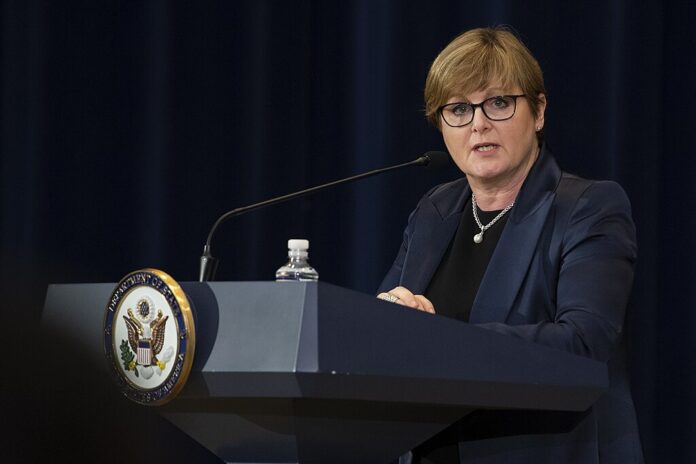Former PM defends Reynolds and criticizes labour’s handling of Higgins’s allegations during the WA Supreme Court proceedings
Former Prime Minister Scott Morrison has appeared via video link in the defamation trial between Liberal Senator Linda Reynolds and her former staffer Brittany Higgins. The trial, held in the Supreme Court of Western Australia, centres around Reynolds’s defamation lawsuit against Higgins over social media posts made in 2023, which Reynolds claims damaged her reputation and caused her distress.
Morrison’s testimony focused on the political ramifications of Higgins’s rape allegation, which first became public on February 15, 2021, through a news article and Higgins’s interview with Channel 10’s The Project. Morrison expressed concern that the allegation had been “weaponised” by Labor for political gain, which he argued had severely impacted Reynolds’s mental health and even led to fears for her well-being.
Embed from Getty ImagesMorrison stated that he found Reynolds in a “very distressed state” when he visited her after she collapsed in the Senate. He criticized the Labor Party’s “aggressive and coordinated” questioning of Reynolds, suggesting that it was designed to discredit both Reynolds and the government, including Morrison himself.
During cross-examination, Morrison was asked whether he was disappointed that he was not informed about the rape allegation before it was publicly disclosed. He acknowledged initial disappointment but justified Reynolds’s decision to keep the information confidential out of respect for Higgins’s wishes.
Morrison also reiterated his previous criticism of Reynolds’s comment referring to Higgins as a “lying cow,” calling it unacceptable. He defended his stance, stating that it was crucial to uphold appropriate standards of conduct, particularly in sensitive situations involving female staff members.
Regarding Reynolds’s eventual removal from her defence portfolio, Morrison denied that her comments played a role in his loss of confidence in her. Instead, he attributed her portfolio loss to the severe impact on her mental and physical health caused by the sustained scrutiny and attacks.
Morrison also addressed criticisms of support for Higgins, asserting that while parliamentary support processes failed both Higgins and Reynolds, he had taken steps to improve these systems.
Analysis
Political: Morrison’s testimony highlights the complex interplay between personal and political issues in high-profile cases. His defence of Reynolds and criticism of Labor’s handling of the allegations reflect broader tensions within Australian politics regarding accountability and political manoeuvring. The case underscores the challenges in navigating sensitive allegations and maintaining political integrity.
Social: The trial has brought intense public scrutiny to the handling of sexual assault allegations within political contexts. Morrison’s comments about the impact on Reynolds’s mental health emphasize the personal toll such cases can have on individuals involved, while also highlighting the broader social issues related to support systems for victims and accused parties.
Economic: The defamation trial and its related media coverage could influence public perception and political capital. The financial implications for both Reynolds and Higgins, along with the broader impact on the government’s reputation, are significant. The trial underscores the economic stakes of public relations and legal outcomes in high-profile cases.
Racial: The trial does not directly address racial issues, but the broader context of public and media scrutiny can have varied implications for individuals from different backgrounds. Ensuring equitable treatment and support for all parties involved remains an important consideration.
Gender: The case has significant gender implications, as it centres on allegations of sexual assault and the treatment of female staff members in a political context. Morrison’s defence of Reynolds and his comments on the “lying cow” remark reflect ongoing discussions about appropriate conduct and support for women in the workplace. The trial highlights the need for sensitive handling of gender-related issues and the impact of public scrutiny on those involved.
